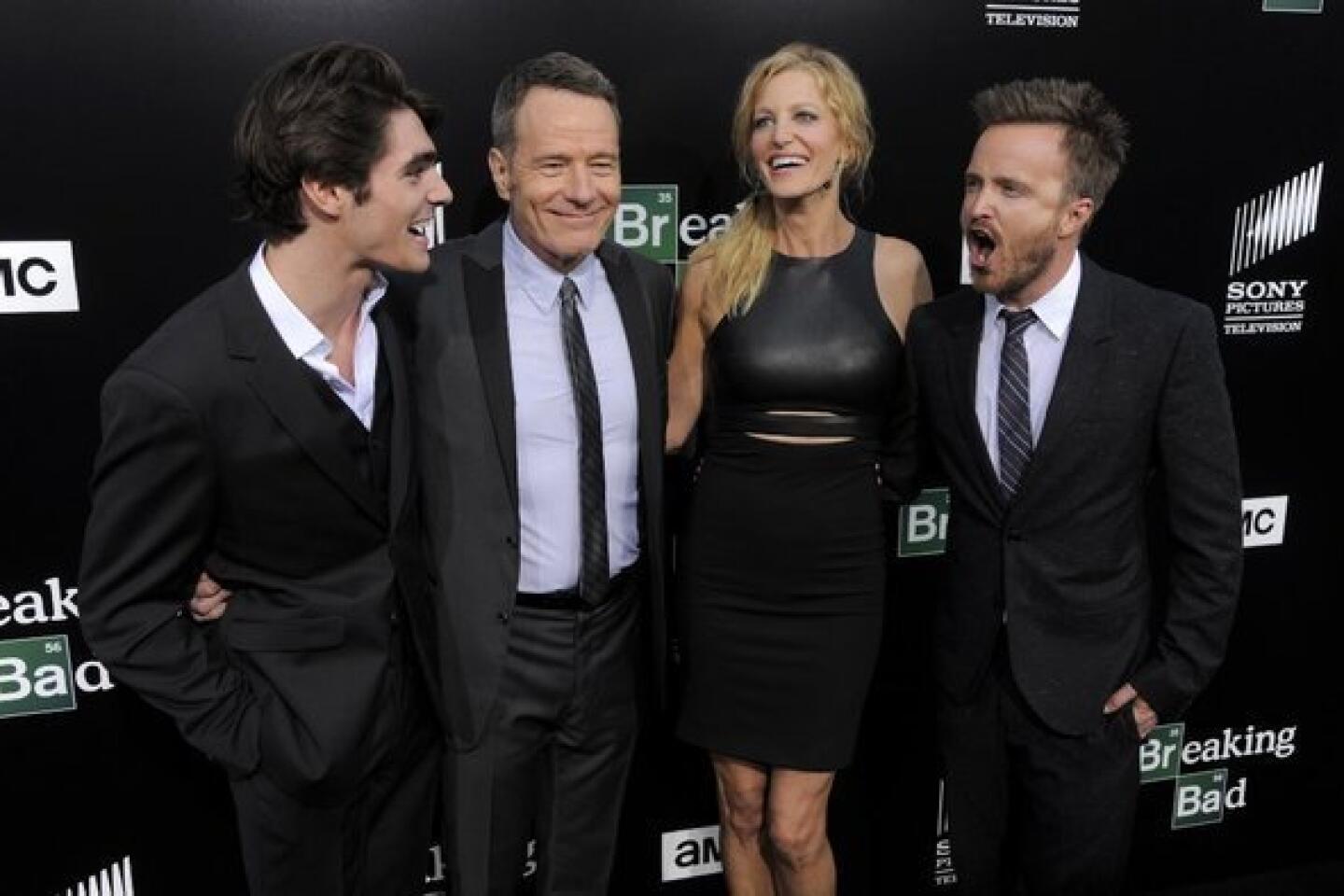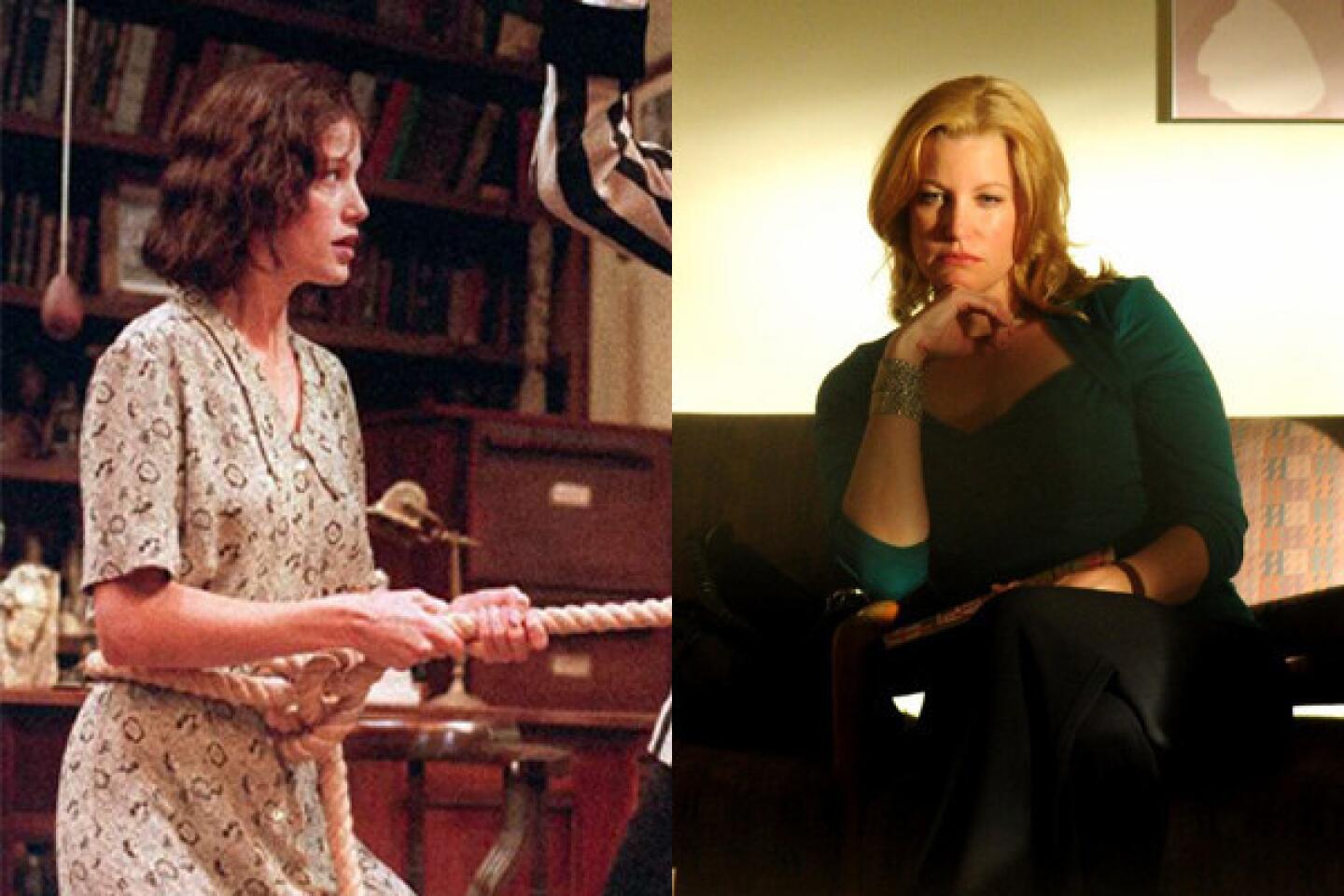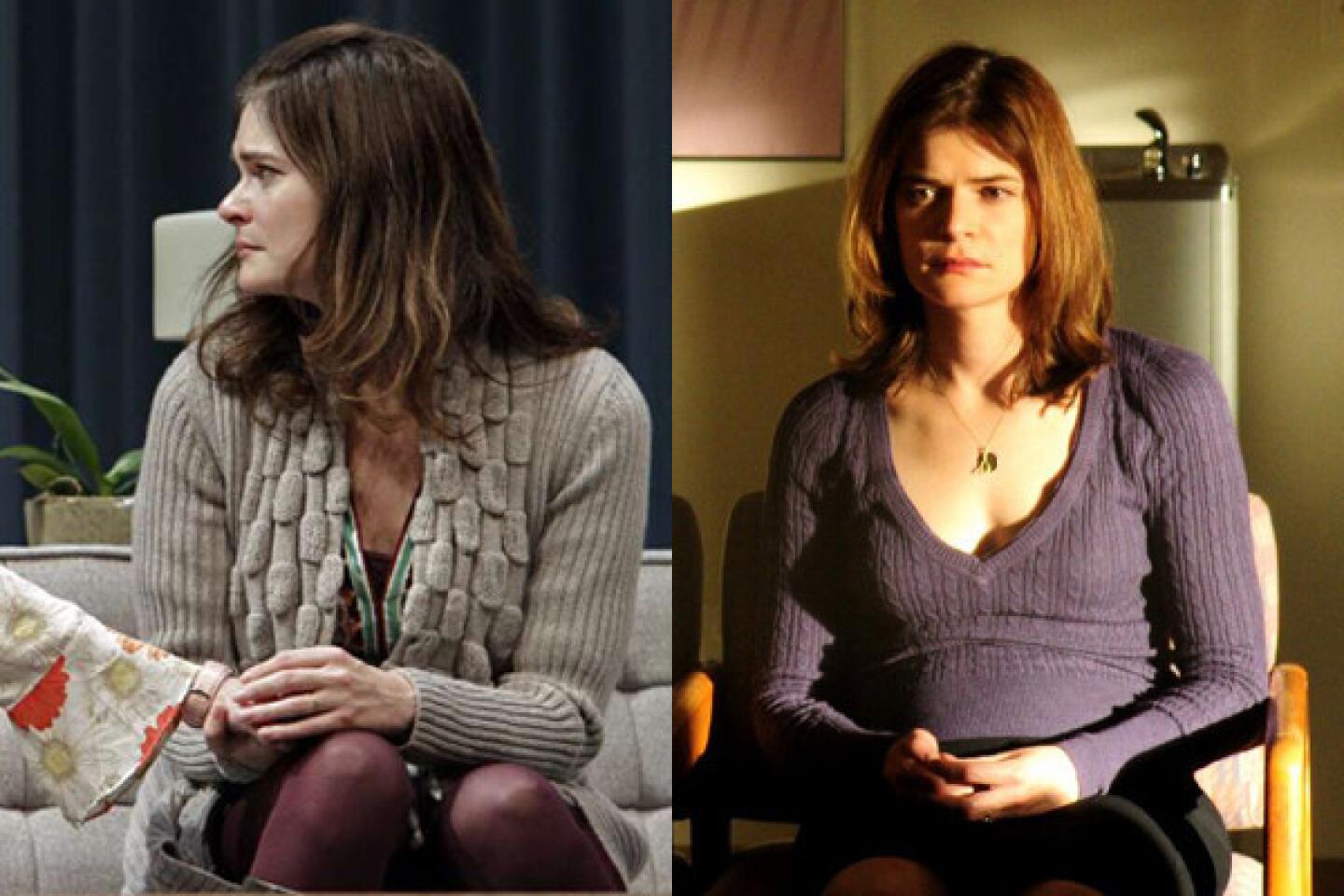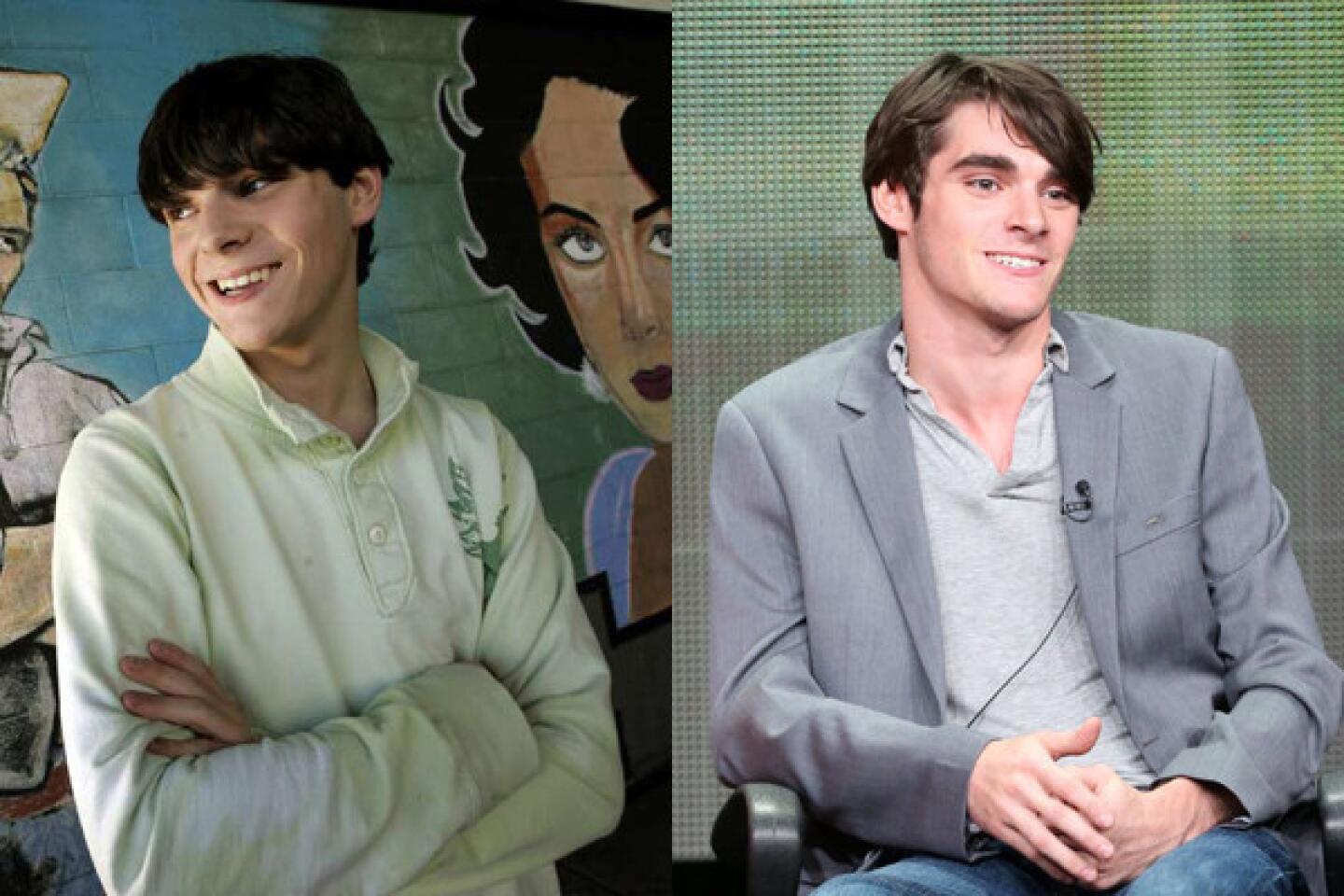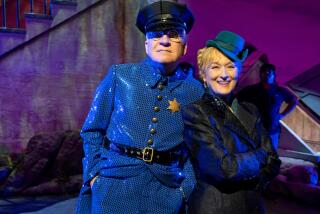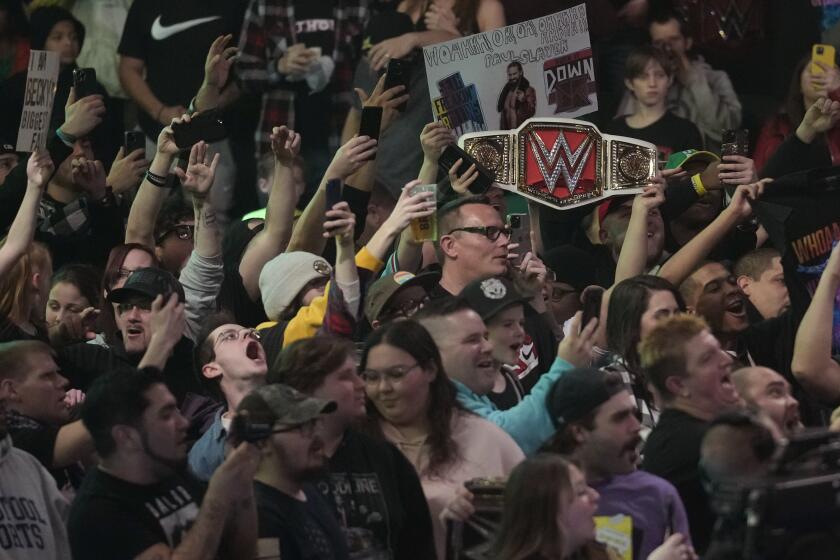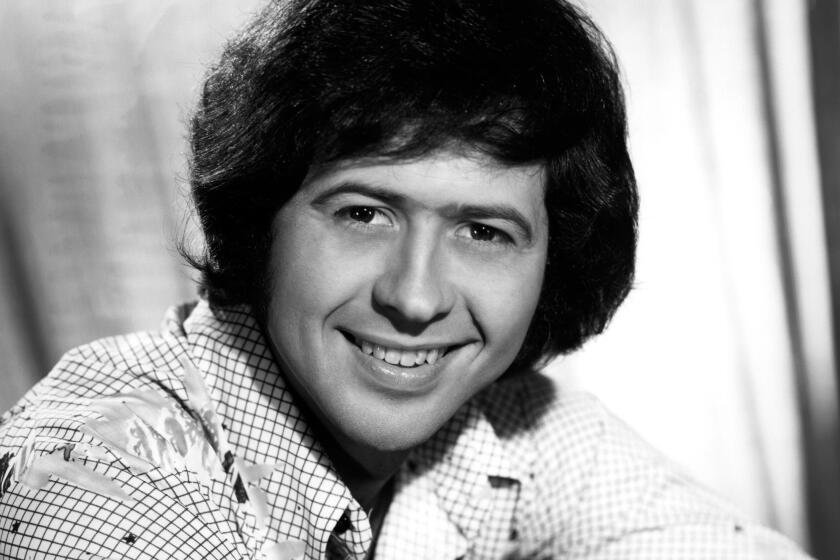‘Breaking Bad’ recap: Lines in the sand
Why does Walter keep Jesse alive?
He insists to Skyler that Jesse is not some “rabid dog” to be taken out back and shot, playing off Saul’s earlier suggestion that Jesse may be in an “Old Yeller situation.” And yet Jesse has just threatened to burn down Walt’s house, once held a gun to Walter’s head and threatened to pull the trigger, and has generally turned on his former mentor and father figure, to the degree that he’s now working with Hank to bring Walt down (though Walter crucially doesn’t know this yet). But Walt refuses to listen to Skyler or Saul when it comes to killing Jesse, when he’s been perfectly fine killing so many others.
The reasons are complicated, of course, and almost certainly include the reason Walt refuses to listen to the idea of killing Hank: Family is sacred. We’ve long seen the ersatz father-son relationship that’s developed between these two men, and remnants of that bond exist, even though the bulk of it has long since unraveled. Back in season four, while ailing and lying in bed, Walter called his own biological son “Jesse,” and it’s clear that traces of those feelings will always be with him.
PHOTOS: Behind the scenes of ‘Breaking Bad’
But also, I think, not killing Jesse is a line in the sand Walter has drawn for himself, even when it’s evident that the young man’s death would benefit Walter substantially. This is the person Walter has struggled so much to keep alive, paying for his rehab and preventing Gus from killing him at the end of season three. Hank pitches this to Jesse as a kind of weird co-dependence — and he has the right of it, as the meeting Walter calls with Jesse is one where he doesn’t plan to kill his former partner — but I wonder if it isn’t deeper than that.
See, some part of Walt has to be continually conscious of just how far he’s fallen from the man he was when the series began. He’s done terrible, horrible things, things that will stand as black stains on his soul for as long as he lives. Yet if he keeps certain lines for himself, then he doesn’t go full Heisenberg, doesn’t fully become the monster he must surely know he is. Not killing Jesse is one of those lines, just as keeping Hank alive is another.
Forget about the practicality (or lack thereof) of the death of either character for a second. Just think about Walter’s constant need to construct lines in the sand that he won’t cross, then how quickly those lines often get obliterated when he starts to feel the slightest bit constricted. Not killing Jesse, not killing Hank — those decisions aren’t just ones he’s arrived at lately. They are, at least from his point of view, a personal Rubicon he will not cross, the one protecting his soul.
Now, we in the audience know that these distinctions are mostly illusory at this point. Walter is so far gone that keeping Jesse alive becomes another kind of stubbornness, and we all know how good he is at being stubborn. And yet when he finally calls Todd at the end of the episode to set up the hit on his former partner, it’s treated with an extreme weight and tragedy — not just because this could spell the end of Jesse but because Walter himself is the one doing it. All that he’s worked for is ultimately useless in the face of his need to protect all he’s worked for, a horrible catch-22 he’s never understood how to escape.
WATCH: Video chat with ‘Breaking Bad’s’ Aaron Paul
Before we get to Jesse’s side of “Rabid Dog,” however, let’s talk a little bit about Skyler, because I’m finding her storyline this season slightly hard to grapple with. Vince Gilligan and his writers have evidently decided to have her go the full Lady Macbeth, and while that’s a logical extension of where her character has been heading for a while, I’m still somewhat disappointed in the choice.
One of the flaws of this fifth season — both halves — so far is that in just eight episodes, Gilligan and company occasionally have to compress their characters emotional arcs into far smaller numbers of episodes than typical. This means they’ve chosen to focus on particular arcs and evolutions, especially Jesse, Hank, and Walt’s. Therefore, when, say, Walt finally, agonizingly decides to call in a hit on Jesse, the moment feels completely earned. He’s exhausted his other options. But when Mike makes some stupid decisions that result in his death in the otherwise excellent “Say My Name,” it feels very much as if he made those decisions because the writers needed him to.
“Breaking Bad” is very much Walter White’s story. The others around him aren’t as fully fleshed out and occasionally service the strictures of the plot before their own character needs. This is all fine because that’s the kind of show this is, and it’s perhaps the best example of this kind of show in TV history (give or take a “The Shield”). But it’s generally very good at portraying the moments when the characters in Walt’s orbit choose to once again cast their lots with him, despite mounting evidence they should do the exact opposite. In the case of Skyler — who’s now openly advocating her husband commit murder and refusing to let him confess his crimes, despite being completely aware of what a monster he is — I’m feeling a bit of whiplash.
I buy Skyler going Lady Macbeth; I don’t understand the fulcrum point that made her flip between the Skyler who was (the one who distrusted and hated her husband) and the one who is (who now attempts to protect the life they’ve built). Maybe that got lost in the weeks skipped over in “Gliding Over All,” and Anna Gunn’s performance is predictably so excellent that it’s easy to gloss over this structural curiosity. But it’s still there, and I wish the show gave us a better glimpse into its most important female character’s head to explain why she’s doing this.
PHOTOS: Before they were actors - ‘Breaking Bad’
In the case of Jesse, however, the show has continued its look at a man marked by inaction being tipped over into furious action, and it’s doing so beautifully. Rather than compete with the justifiably famous scene in “The Shield” where a character outlined the many crimes committed over the course of that series, it elides the scene where Jesse spells out what he and Walt got up to during the run of “Breaking Bad,” instead playing off the shocked expressions on Hank and Steve after hearing said confession.
And it also outlines a Jesse who finally, finally takes control of his own life. The scene where Hank says that if Walter kills Jesse during the meeting he schedules with the young man, at least the DEA will have it all on tape, is a sickening one for the closest thing the season has to a “hero,” showing how he, too, is marked by a strange obsession, the need to be the guy who brings down his brother-in-law at all costs. But Jesse, fearing for his life after seeing a menacing looking man standing just off to the side of Walter (who turns out to be completely unconnected to Walt), instead flips the script, announcing he has his own plan. He won’t be used anymore by either Walt or Hank. If he dies, it will be on his terms.
Maybe that line Walt draws in the sand is the whole point of the episode — or even the series. The most seemingly disconnected scene in the episode involves Marie at therapy, talking through her emotions in the wake of learning about Walt’s guilt. It’s mostly a nice little showcase for Betsy Brandt (who also gets to share a scene with Aaron Paul for the first time in the series), but it also highlights something the series has gotten away from in recent seasons: Marie used to be a part of the series’ larger theme about how everybody sins, how everybody sets lines in the sand that are crossed every day. Walt’s lines are larger and more significant — it’s hard to argue that stealing commemorative spoons from a real estate open house is anywhere near murder on a moral scale — but we’re all always negotiating deals with ourselves to preserve our own sanctity.
And sometimes, events are so horrific that we find ourselves questioning the lines we thought we’d never cross. Marie starts investigating untraceable poisons online; Walt decides it’s time for Jesse to die. We all look at a man like Walt and say we could never become like him, but “Rabid Dog” reminds us how easy it would be to give into our own deepest darkness.
ALSO:
‘Breaking Bad’ recap: Jesse’s moment of truth
‘Breaking Bad’ recap: Long-buried bombs explode
Emmys 2013: Will this finally be the year for ‘Breaking Bad’?
Twitter: @tvoti
More to Read
The complete guide to home viewing
Get Screen Gab for everything about the TV shows and streaming movies everyone’s talking about.
You may occasionally receive promotional content from the Los Angeles Times.
